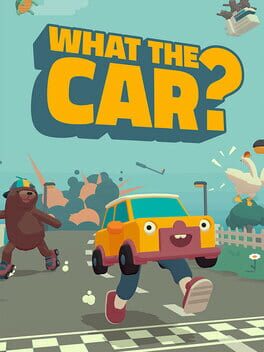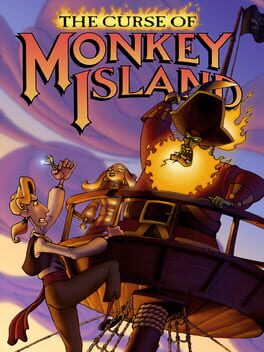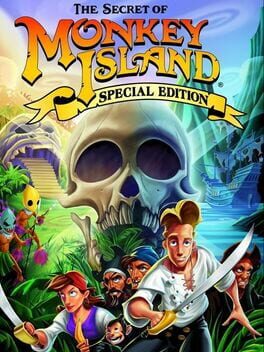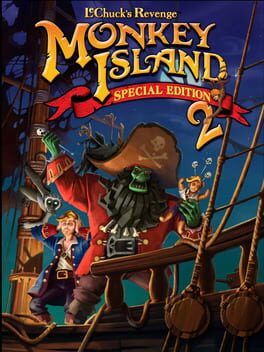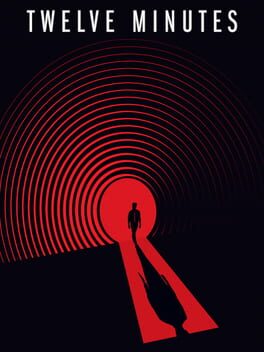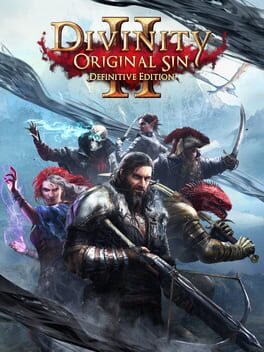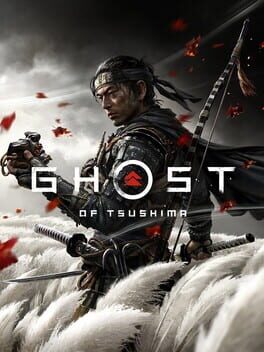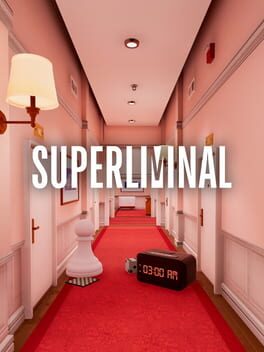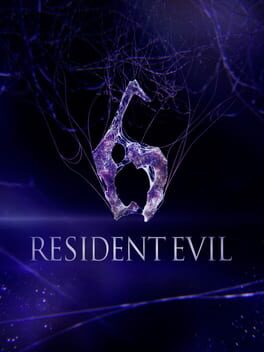yomarz
2023
Not as fun or creative as What The Golf?, but still entertaining enough to pass the time during a bowel movement. These lol random physics games lose steam pretty quickly.
2023
The remake of Resident Evil 4 is fun. That's all it really needed to be, being the remake of one of the most notoriously fun games of all time. The game smartly retains the overall structure and pacing of that original game while updating it with smoother controls, more dynamic AI, and all the visual trappings of a modern AAA game. It's a fantastic experience and a game that, for me, easily sits in the pantheon of the best Resident Evil games.
My main issues with the game (docking it a whole HALF star by the way!) are twofold. One is that the addition of the merchant requests grinds an otherwise expertly-paced game to a standstill. They're obvious ploys to give a bit more "content" to the player, usually in the form of shooting X number of medallions or backtracking and killing X number of rats. Occasionally there were some fun and clever ones (the Salazar painting comes to mind), but largely I found them unnecessary, only there to complement the revamped merchant trading system.
Secondly, the game has tonal issues. The original Resident Evil 4 knew exactly what it was. It was a brash, irreverent action B-movie. It was stupid and it knew as much, but that lent credence to a world where a one-liner spewing ex-cop and a tiny Spanish lord could get in pissing matches over the phone. The remake lives in that world too, but it refuses to admit that it's stupid. It tones down the campiness while upping the drama. It builds up characters like Luis, Ada, Ashley, and Krauser, yet removes some of the charm from the baddies like Salazar and Saddler. It makes Leon into a brooding, haunted hero, in line with his portrayal in RE2 Remake, yet he still remarks that all the angry villagers have gone off to bingo. Almost all the stupid, ridiculous stuff that happens in the original happens in this one as well, and sometimes the game doesn't really know how to handle that in a narrative sense.
This point may seem like a larger gripe, but it didn’t ruin my enjoyment of the game. It didn't take me away from how much fun I was having, but it did make me pause a few times and go really? But tonal whiplash and fetch quests aside, the game clearly loves its source material as much as the rest of us do. With how faithful this game is to the original, it's clear why RE 4 is such a classic.
My main issues with the game (docking it a whole HALF star by the way!) are twofold. One is that the addition of the merchant requests grinds an otherwise expertly-paced game to a standstill. They're obvious ploys to give a bit more "content" to the player, usually in the form of shooting X number of medallions or backtracking and killing X number of rats. Occasionally there were some fun and clever ones (the Salazar painting comes to mind), but largely I found them unnecessary, only there to complement the revamped merchant trading system.
Secondly, the game has tonal issues. The original Resident Evil 4 knew exactly what it was. It was a brash, irreverent action B-movie. It was stupid and it knew as much, but that lent credence to a world where a one-liner spewing ex-cop and a tiny Spanish lord could get in pissing matches over the phone. The remake lives in that world too, but it refuses to admit that it's stupid. It tones down the campiness while upping the drama. It builds up characters like Luis, Ada, Ashley, and Krauser, yet removes some of the charm from the baddies like Salazar and Saddler. It makes Leon into a brooding, haunted hero, in line with his portrayal in RE2 Remake, yet he still remarks that all the angry villagers have gone off to bingo. Almost all the stupid, ridiculous stuff that happens in the original happens in this one as well, and sometimes the game doesn't really know how to handle that in a narrative sense.
This point may seem like a larger gripe, but it didn’t ruin my enjoyment of the game. It didn't take me away from how much fun I was having, but it did make me pause a few times and go really? But tonal whiplash and fetch quests aside, the game clearly loves its source material as much as the rest of us do. With how faithful this game is to the original, it's clear why RE 4 is such a classic.
2019
Good but also bad. Play with friends.👍
2020
A remarkably ambitious game with a compelling world and excellent quest variety. Even quests that at first seem periphery often lead to creative, thought-provoking, and emotionally resonant scenarios that really take advantage of the cyberpunk setting.
The game clearly loves and understands its world, immersing you in this late-stage capitalist dystopia not too far removed from our own world. Commercials and news serve as the only content on TV, and billboards assault you with exploitative sexuality. Violence and death are fetishized. Beggars wander the streets in the shadow of glimmering corporate megastructures while police harass civilians with impunity. Politicians' minds are controlled from the shadows. This is a very politically engaged game, and it compels you to explore every inch of this world.
Yet Cyberpunk 2077 is hampered by lingering technical issues and gameplay that proves more shallow the longer you play. The initial lifepaths serve as little more than flavor text for interactions throughout the game, and the combat systems, while fun and varied, don't expand as they should in a game that touts itself as a deep RPG. It's easy to settle into a groove and avoid experimentation, especially since the quests are designed to be achieved by anyone regardless of playstyle.
The game begs to be compared to Deus Ex, the gold-standard cyberpunk RPG, but really it's more Grand Theft Auto meets Deus Ex: Human Revolution. I enjoyed my time with it, but the game clearly wanted to be more and sadly doesn't live up to its potential. Ambition only takes you so far.
The game clearly loves and understands its world, immersing you in this late-stage capitalist dystopia not too far removed from our own world. Commercials and news serve as the only content on TV, and billboards assault you with exploitative sexuality. Violence and death are fetishized. Beggars wander the streets in the shadow of glimmering corporate megastructures while police harass civilians with impunity. Politicians' minds are controlled from the shadows. This is a very politically engaged game, and it compels you to explore every inch of this world.
Yet Cyberpunk 2077 is hampered by lingering technical issues and gameplay that proves more shallow the longer you play. The initial lifepaths serve as little more than flavor text for interactions throughout the game, and the combat systems, while fun and varied, don't expand as they should in a game that touts itself as a deep RPG. It's easy to settle into a groove and avoid experimentation, especially since the quests are designed to be achieved by anyone regardless of playstyle.
The game begs to be compared to Deus Ex, the gold-standard cyberpunk RPG, but really it's more Grand Theft Auto meets Deus Ex: Human Revolution. I enjoyed my time with it, but the game clearly wanted to be more and sadly doesn't live up to its potential. Ambition only takes you so far.
Despite not having Rob Gilbert and Dave Grossman as development leads (as well as Tim Schafer, who only worked as a consultant on Curse), "The Curse of Monkey Island" manages to retain the same wit and charm as the first two games with a fair balance of easy and brain-wracking puzzles. The star of the show, however, is the art and animation. Even though I love the look of Monkey Island 2 Special Edition, this is by far the most cohesive and charming art style in the series. It clearly set the tone for the look of those remasters over a decade later. The only thing hampering it is the low resolution in-game and in cutscenes. An HD cleanup of Curse would be fantastic!
2019
Funny and charming. But like most of these physics-based comedy games (Goat Simulator, I am Bread, DEEER Simulator, etc.), there were quite a few instances of frustration due to the physics bugging out or the game otherwise breaking.
A great point-and-click with an incredibly solid first act. However, the game starts falling apart with increasingly inane logic, clunky mechanics, and an open space crammed with tedious backtracking. Still funny and clever, but the remake is hampered by its commitment to the mechanics of the original.
Monkey Island 2 is definitely more consistently solid than its predecessor. Though it occasionally gets tiring (the core of the game consists of constant island-hopping and backtracking in order to solve seemingly every puzzle. No fast travel menu either... thanks 90's game design), the logic is largely solid and the hilarious writing keeps you motivated throughout. The special edition version is also significantly more polished than that of Monkey 1. The beautiful painted art style is more consistent and the improved context menu takes away some of that archaic point-and-click pain. Though it would remove the ability to do the classic version hot-swap at the push of a button, mechanical improvements, in addition to the aesthetic ones, would have been greatly appreciated. Still an absolute joy, though.
Monkey Island 2 is definitely more consistently solid than its predecessor. Though it occasionally gets tiring (the core of the game consists of constant island-hopping and backtracking in order to solve seemingly every puzzle. No fast travel menu either... thanks 90's game design), the logic is largely solid and the hilarious writing keeps you motivated throughout. The special edition version is also significantly more polished than that of Monkey 1. The beautiful painted art style is more consistent and the improved context menu takes away some of that archaic point-and-click pain. Though it would remove the ability to do the classic version hot-swap at the push of a button, mechanical improvements, in addition to the aesthetic ones, would have been greatly appreciated. Still an absolute joy, though.
A great point-and-click with an incredibly solid first act. However, the game starts falling apart with increasingly inane logic, clunky mechanics, and an open space crammed with tedious backtracking. Still funny and clever, but the remake is hampered by its commitment to the mechanics of the original.
2021
Sir?
Divinity: Original Sin II has maybe the most intricate combat mechanics that I've ever seen. The number of intertwining systems in this game is staggering, often overwhelming (sorry for casting restoration. I forgot you were decaying). It is a constant dance of elemental surfaces and status effects that makes every encounter unique and thrilling. While character interactions are largely shallow, the breadth of content more than makes up for it. Everything can be spoken to in this game, from flaming slug monsters to sewer rats. All of it voice acted, yet hidden behind an optional talent that many players will never select. You can play this game straight (as intended?) or you can fudge with the systems as much as possible (as intended?). You enter a room where skeletons come to life after interacting with an object? Just drag the skeletons out of the room and you won't have that problem. And without spoiling, my friend and I may have killed one of the final bosses by holding onto a crate of insta-kill death fog from earlier in the game and just dropping it next to him. This game is total freedom.
2020
Ghost of Tsushima is like most of your modern open-world action games. It suffers from content bloat in a largely lifeless world. It features repetitive gameplay and a story about as deep and winding as a straight line drawn in the sand. Despite all this, the best way I could describe this game is: "comfy." The combat was exhilarating during each and every encounter. The story executed all the necessary beats and was presented beautifully. And clearing the checklist of pointless side activities was a priority of mine because it meant I could keep experiencing this stunningly serene world. I didn't binge this game, but I enjoyed it every time I picked it back up. Ghost of Tsushima proves that it isn't the formula that makes a game good, it's the execution.
2019
Following the footsteps of Portal and The Stanley Parable, Superliminal is a fantastically executed and creative, albeit simple, narrative puzzle game hampered by severe framerate issues on Xbox One.
2012
Played the Leon campaign and have no desire to play any more. 5 was a fun co-op game...
